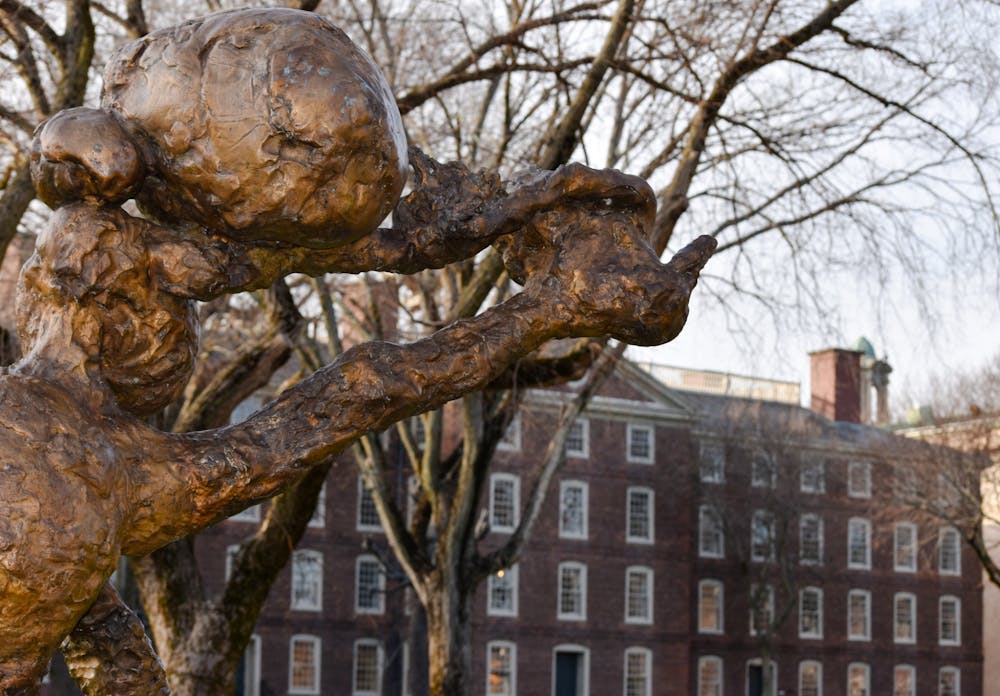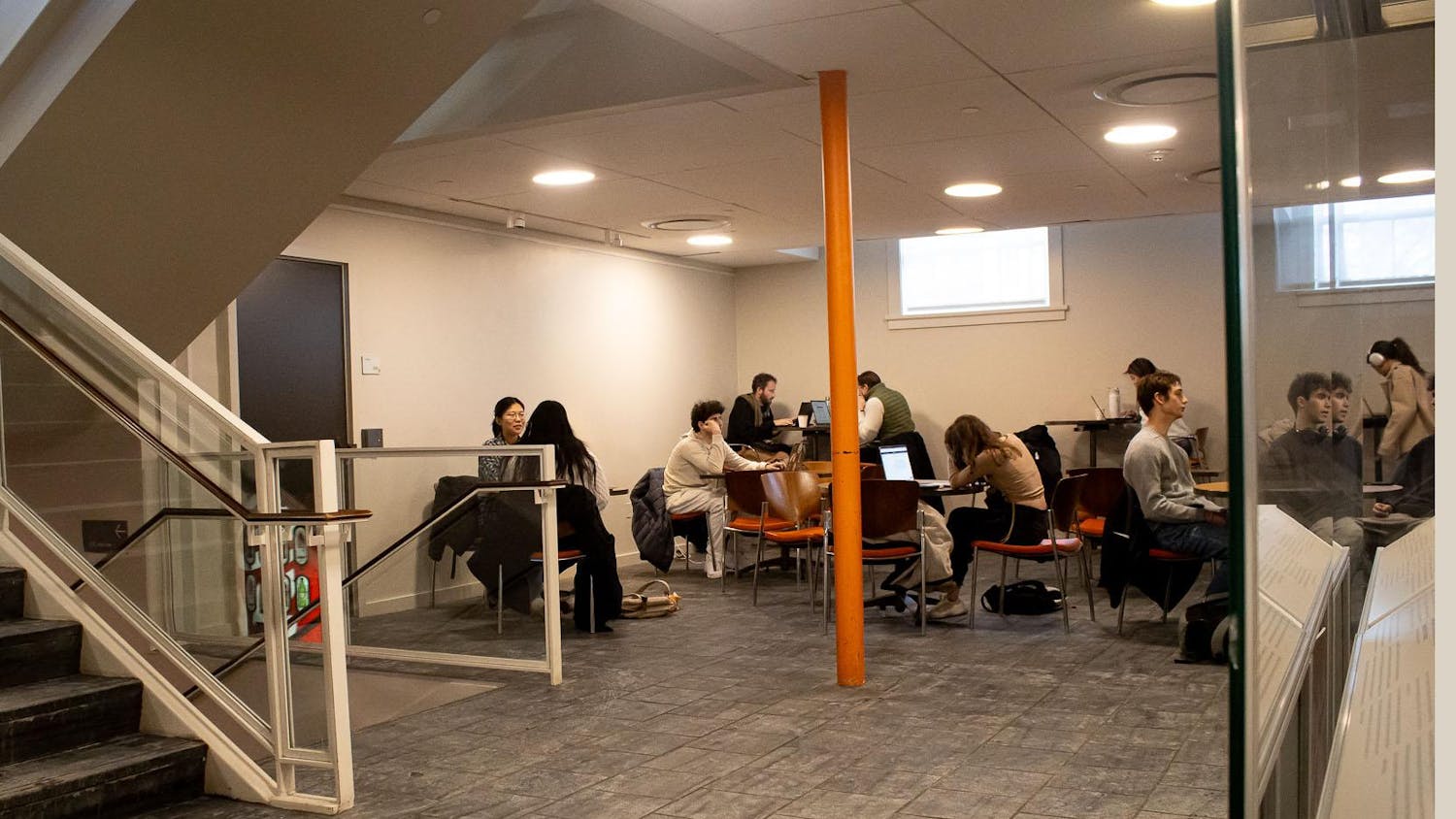Members of the University's faculty voted to extend first-year orientation by two days during the last faculty meeting of the semester Tuesday, making permanent a pilot program from the three most recent academic years.
First proposed in 2020, the pilot program’s schedule shifted Academic Advising Day and first-year registration to the Friday before Labor Day weekend, The Herald previously reported. The pilot program extended the total first-year orientation from four to six days, making Brown’s orientation more similar to peer institutions in length.
Kenneth Wong, professor of education policy and chair of the Faculty Executive Committee, spoke in favor of the change, which ultimately passed with a 66% majority. The FEC previously requested that the Dean of the College elicit feedback from faculty advisors and students from the past two pilot years, Wong said.
“The evidence strongly suggests that academic advisors have fully engaged in the revised orientation calendar and that their earlier advising has resulted in a significant reduction in the number of under-registered and unregistered students,” Wong said.
Dean of the College Rashid Zia ’01 presented in favor of the motion. According to Zia, the University’s orientation program was shortened from six to four days for the academic years from 2007 to 2019. This moved Academic Advising Day to the Tuesday after Labor Day, when first-years were expected to register from 7 p.m. to midnight the night before classes, he added.
Before the pilot program, 10% of first-year students were not yet registered with a full-time course load before starting classes, Zia said. But the pilot program has reduced the number of under-registered students by 84% and unregistered students by 87%.
Based on input from first-year students, the College found that students were largely in favor of the new orientation schedule, Zia said. Over three-quarters of students said that “advising meetings helped me understand how to plan my education within Brown’s Open Curriculum,” according to Zia’s presentation.
The College also noticed a “significant overrepresentation” of students with historically marginalized identities among those who could find better advising and guidance through the extended orientation program.
The program “allowed us to reach more (students) and address what is a pretty large equity gap amongst our students,” Zia said.
“If we’re talking about students that are potentially disadvantaged,” said Sylvia Kuo, senior lecturer in economics, “setting them up with (resources) earlier I think is actually a really good thing.”
Kuo noted that, as an academic advisor, she found many of the conversations she was having with students to be “less frantic” than those typically had on the Tuesday before classes began.
Mark Blyth, professor of international economics and international and public affairs, said that he does not believe “the numbers justify this ultimate change.” According to Blyth, a report on the pilot program given to faculty referenced 47 unregistered students and 174 under-registered students between 2016 and 2019, accounting only for about “2.5% of all students,” meaning that 97.5% of all students were accommodated by the current system, Blyth said.
“I am wondering, given that level of efficacy, how much of a problem we’re trying to solve,” Blythe said.
Amanda Jamieson, associate professor of molecular microbiology and immunology and pathobiology graduate program co-director, expressed concerns about conflicts the new schedule creates for those involved with graduate student advising. When Academic Advising Day occurs, Jamieson said that many graduate student advisors who are also involved with advising undergraduates are going on departmental retreats and “being asked to be in two places at the same time.”
Zia added that the University is already considering ways that the orientation schedule can be amended to accommodate graduate student advisors.
Jim Valles, professor of physics, said that he found the permanent change “incredibly compelling,” as it allows students to reflect on their initial registration and take the time to consult with their Meiklejohn peer advisors and academic advisors.
Senior Lecturer in Mathematics Daniel Katz added that having registration occur days in advance of the first day of classes allows professors who teach larger courses more time to communicate with students about their needs and avoid instances where “you have 80 (students) in a room that the scheduling office gave us for 40 people.”
Zia added that the University plans to build out pre-orientation training for students concerned about technical issues with registration that their academic advisors cannot answer. This year, the University also offered students and advisors Zoom meetings when seeking answers to such questions.
“This is really about whether we want to be a welcoming and supportive place for all of our students,” Zia said. “We can fix (the timing of Academic Advising Day and registration). We know how to do this now.”
Correction: A previous version of this story incorrectly stated that Rashid Zia identified underprepared students as an issue to “fix.” In fact, he was referring to the timing of Academic Advising Day and first-year registration. The Herald regrets the error.

Alex Nadirashvili was the managing editor of multimedia and social media for The Brown Daily Herald's 133rd Editorial Board. As a former University News editor, he covered faculty, higher education and student life, though his proudest legacy is The Brown Daily Herald TikTok account.





